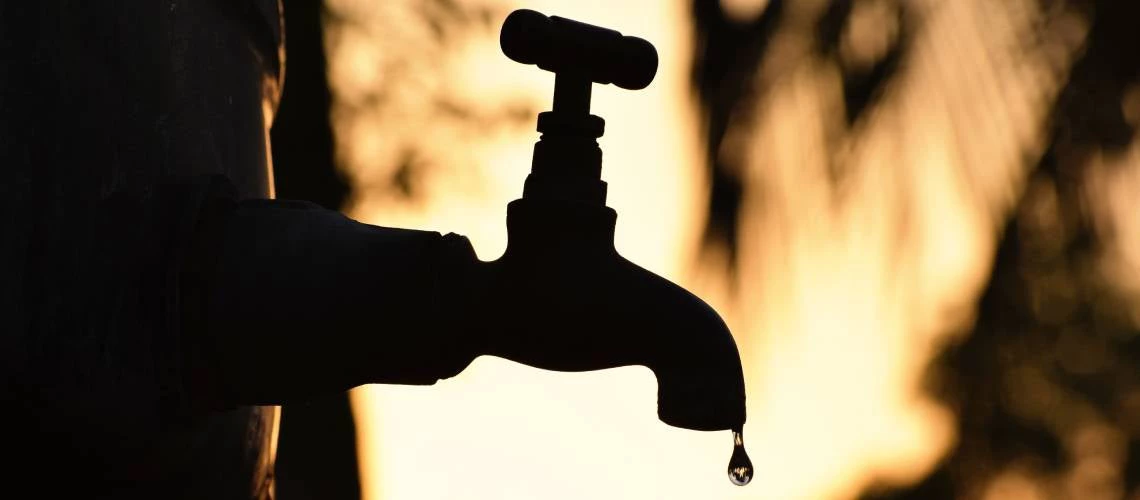 Silhouette of a water tap. Photo: Alameen R/Shutterstock
Silhouette of a water tap. Photo: Alameen R/Shutterstock
Utility of the Future is one of the initiatives supported by Global Water and Sanitation Partnership.
Worldwide, the water sector is witnessing three scenarios: too little water, too much water, and water that is too polluted. While some countries may face only one, others often face two or even all simultaneously. Countries face these scenarios due to many causes, including dilapidated infrastructure, haphazard urban growth, and weak institutions. These vulnerabilities are further exacerbated by climate change which is placing an additional burden in the form of more frequent and more intense floods, unprecedented droughts, and sea level rise, to name a few. Like many phenomena disrupting the world today, an equal number of disruptive and game-changing ideas are needed to tackle challenges head-on. This urgency for innovation in the water sector drove the World Bank and the State Secretariat for Economic Affairs (SECO) to launch the Utility of the Future (UoF) Global Youth Challenge to harness the energy and creativity of young people everywhere, focusing on an utility in Africa that was at the heart of the Challenge.
Located in the second largest city of Zambia, Kitwe, the utility provides water and sanitation services to three towns with an estimated population of 900,000. Their service scope, which continues to expand, adds further pressure to manage water systems. Recognizing the urgent need for transformation to face challenges head-on and thrive amid climate-change-driven uncertainty, the utility joined the World Bank's Utility of the Future Program (UoF). The Program aims to help individual utilities become a "future-focused utility, which provides reliable, safe, inclusive, transparent, and responsive WSS services through best-fit practices that allow it to operate in an efficient, resilient, innovative, and sustainable manner."
One of the main challenges for the utility is the inefficient use of water and energy due to high levels of non-revenue water and processes that require significant power usage. The utility is addressing these challenges as part of its transformational journey and its goal of reaching net-zero carbon emission, which will contribute to more efficient energy use and mitigation efforts in the context of climate change. Against this background, the utility called for youth-led ideas about how to help them achieve their objectives. Over 100 young people aged 18-35 applied for the Challenge. The top candidates were put on diverse teams to collaborate with others. To facilitate the development of innovative approaches to aid the utility's objectives, the youth teams received several data pieces, including energy assessment reports, performance data from the different WSS processes, and an interview with the utility's staff.
Ultimately, one team - Team Drops of Change – offered the most innovative solutions. They were chosen following several rounds of review that culminated in a final pitch during SIWI's World Water Week. The team proposed five flagship programs to address Nkana WSS Company's challenges, enhance their operations and level of service, and bring them closer to becoming a Utility of the Future.
-
Microalgae Wastewater Treatment Project
-
Wastewater Reuse
-
Watershed Protection Program
-
Water Infrastructure Optimization Program
-
Energy Efficiency Program
Taking the first flagship program as an example, the team proposed upgrading the Nkana East Wastewater Treatment Plant to integrate a microalgae treatment process in which microalgae release oxygen as a byproduct of photosynthesis which in turn is utilized by aerobic bacteria to degrade the remaining organic loads further. This will eliminate energy costs associated with mechanized aeration during conventional wastewater treatment. Additionally, the resulting algal biomass can produce methane biogas and organic fertilizer, thus lowering direct methane emissions and creating additional revenue streams for the utility.
Another proposed solution – the Water Infrastructure Optimization Program - focuses on reducing the high levels of non-revenue water through proper asset management practices, conducting a water infrastructure audit to guide expenditure decisions, and deploying instrumentation and monitoring devices for enhanced leak detection, all the while providing training for utility's staff on the proposed interventions.
The solutions offered by the team can help the Zambian utility reach its ambitious goal of net-zero carbon emissions. Consequently, the utility will consider how it can integrate the solutions into action plans.
The Challenge highlighted the relevance and value of youth engagement and proved a great way to crowdsource ideas from brilliant minds. At the same time, it offered participants the opportunity to work on a real case scenario while also interacting with experienced professionals. The World Bank, the Swiss State Secretariat for Economic Affairs (SECO), and other partners remain committed to developing further incentives for supporting the engagement of young people in global efforts towards a more water-secure world for all.
Drop of Change Team Members:
-
Favour Eragbie, Team Lead at Friends of Nature
-
Lara Egbeola-Martial – Project Engineer at SRT Consultants
-
Murissa Christian – Disaster Management Officer at College of Health Sciences, Makerere University
-
Nicolai Thorball, Assistant Project Engineer at Nicholas O’Dwyer
-
Yaw Adjei Abrampah – Civil/Project Engineer at Ghana Water Company
Related Links:
Dreaming big pays off: How young people are disrupting the water sector with bold ideas

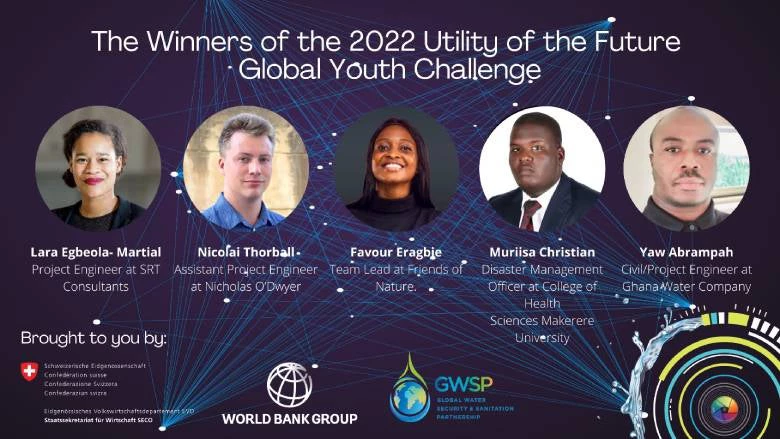
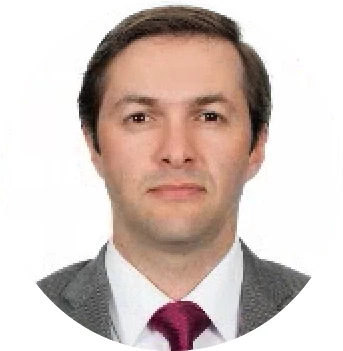

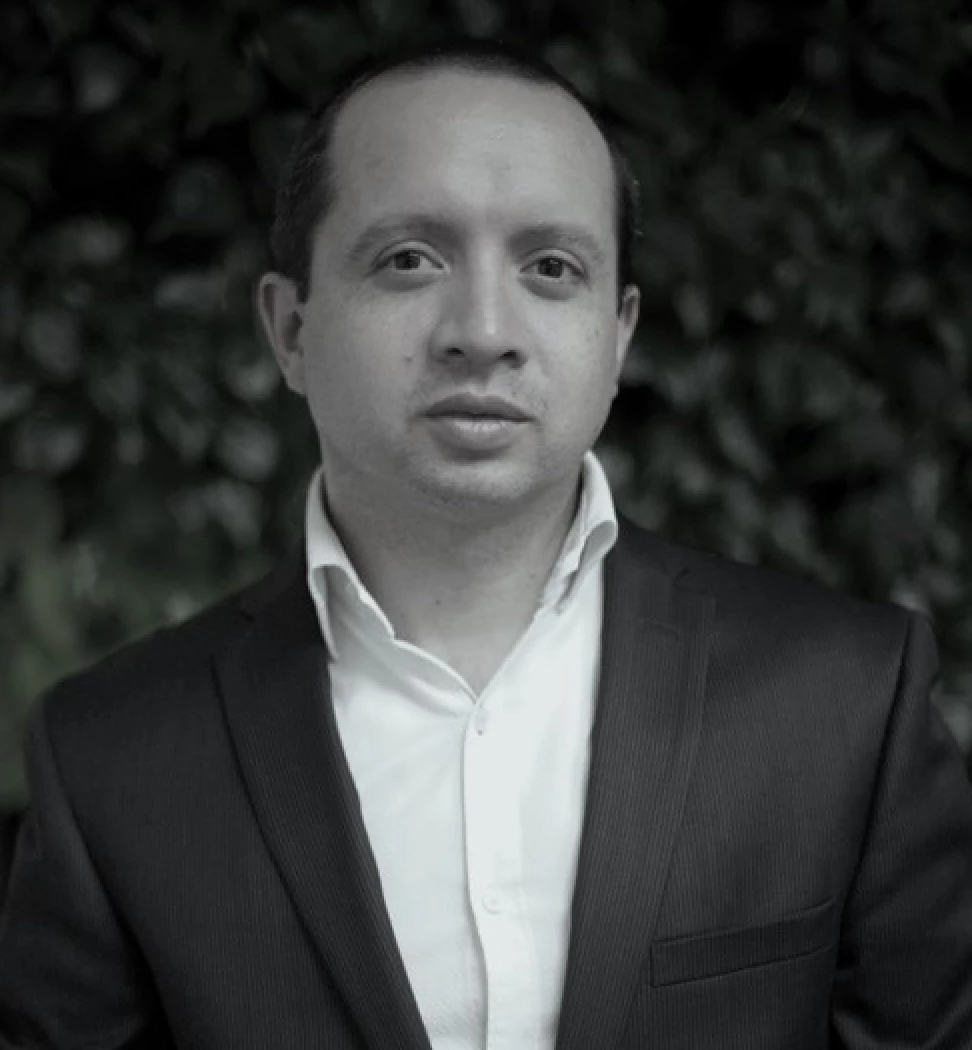



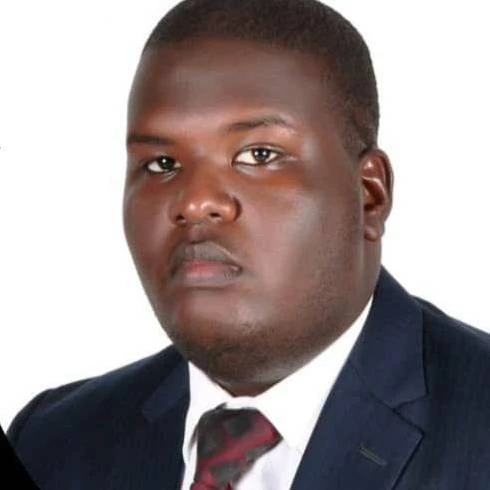
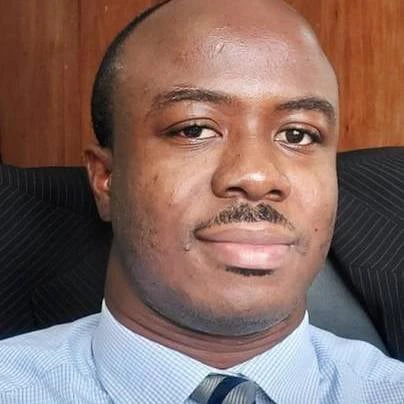
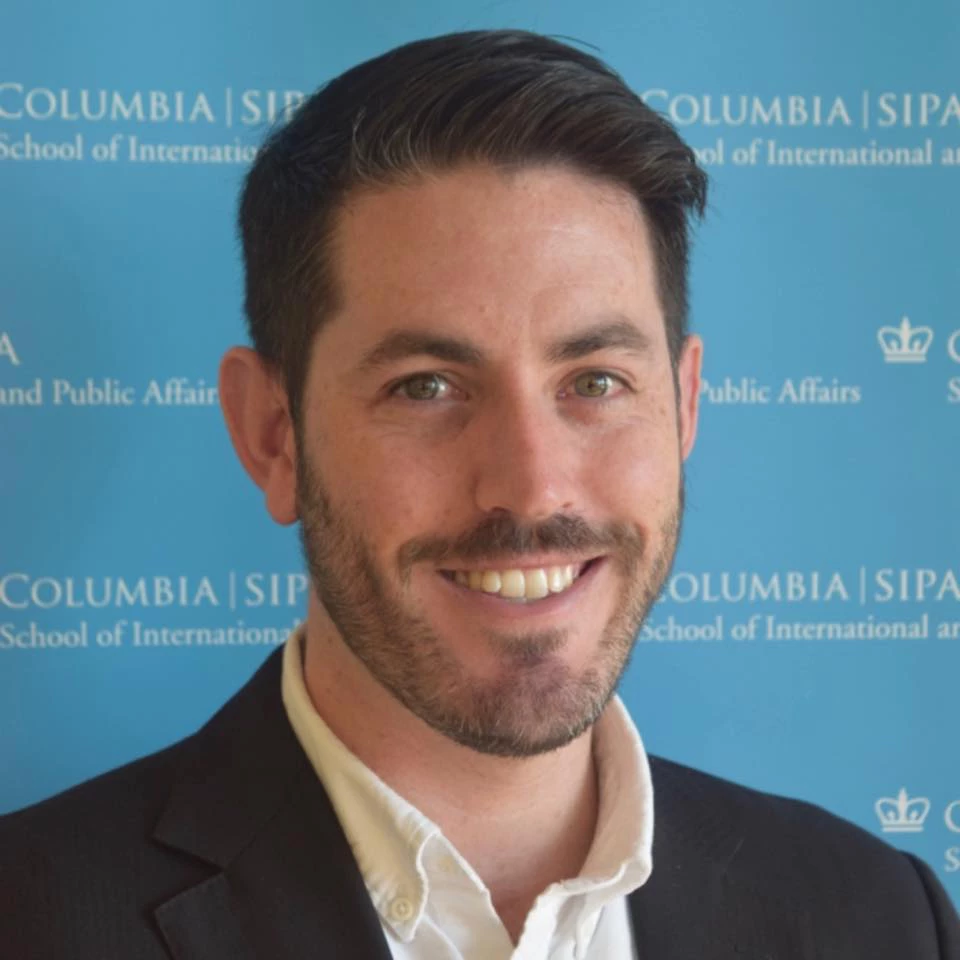
Join the Conversation